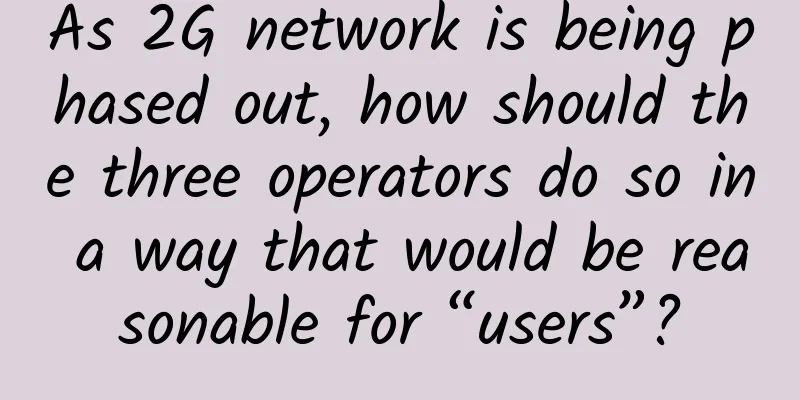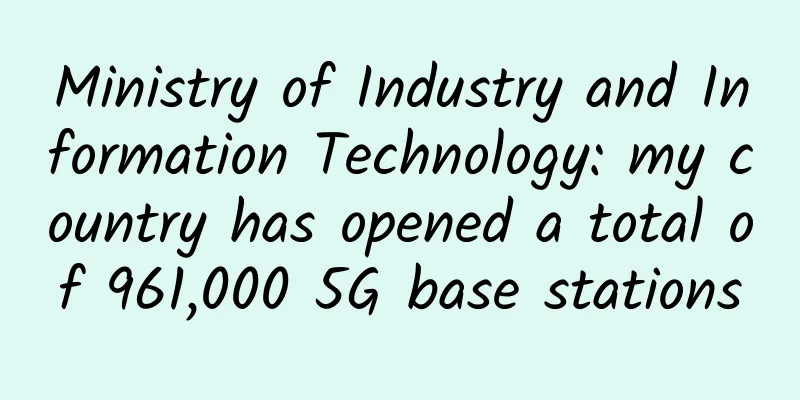As 2G network is being phased out, how should the three operators do so in a way that would be reasonable for “users”?

|
Since the news that Apple 13 completely abandoned support for China Telecom's 2G/3G network was exposed online recently, the progress of the three domestic operators' withdrawal from 2G networks has suddenly attracted the attention of netizens. Interestingly, the editor found that a netizen's evaluation of the operators' withdrawal methods is quite appropriate, and the general idea is as follows.
China Unicom’s withdrawal of 2G is like cutting a cake, piece by piece, and then leaving one piece (Hebei Unicom) for you to enjoy slowly! And finally eat it; China Mobile’s withdrawal of 2G is like making pancakes, one on each side, G1800 is gone, and then G900 can’t access the Internet; China Telecom’s withdrawal of 2G is like getting a haircut, pushing and pushing, getting shorter and shorter. In short, China Unicom is good at "cake-cutting" network withdrawal, China Mobile likes to dismantle indoor base stations, and China Telecom likes to thin out macro stations. From this, it can be seen that the direction of netizens' attention to 2G has changed. In the past, people were arguing about whether to withdraw or not. Now everyone has accepted the fact that 2G will be phased out of the communications stage sooner or later, and the focus has become "who will withdraw first and how?" Naturally, the withdrawal methods of the three operators have inevitably caused complaints. The editor has summarized the complaints about each company from the comments of netizens. The complaints about China Unicom are easy to understand. At the beginning of the year, it planned to completely withdraw from the 2G network, which was too abrupt and swift. Users think that the withdrawal was too fast and not considerate of elderly users. The complaint about China Telecom is that the withdrawal of the network has no focus, and it is dealt with like completing a task. Logically speaking, China Mobile's method of slowly thinning out the bearer network should be considered relatively gentle. I don't know if it is the "joint responsibility effect" of the first two companies. In short, users don't have anything good to say about China Mobile's 2G network withdrawal. How should operators withdraw 2G network?What do users think about the withdrawal of 2G network? According to some users, the three operators should withdraw the network in a planned manner in stages, first completing the comprehensive and in-depth coverage of 4/5G network in the vast rural areas of the country, at least to ensure that there will be no signal blind spots in places where people live. Secondly, it is best to give preferential treatment to elderly users, such as giving away 4G mobile phones for free when withdrawing from 2G network. This idea is reasonable from the user's perspective. According to the latest statistics, there are still 273 million 2G users in China, accounting for 17.15% of the total number of mobile phone users. In particular, my country has entered an aging society, with the number of people over 65 years old reaching 167 million last year. The 2G network currently mainly serves the elderly, and it should not be hasty to withdraw from the network. From the perspective of operators, the contradiction comes first. Now is the period of full construction of 5G. The faster the network speed, the higher the frequency band, the higher the energy consumption and bandwidth occupation. The withdrawal of 2G and 3G is also to make room for these resources so that the one billion mobile phone users, except for the elderly, can enjoy better network services. According to users, the task of withdrawing 2G from the network may not be completed until 2031. Another reason may be that fewer users know about it. So far, 2G and 3G are still using European and American technology, and countries that use their technology spend a lot of money every year. Although 4G and 5G also use European and American technology, China has a large proportion and has great autonomy, and it is not easy to be strangled by others. Therefore, withdrawal from the network is also related to national strategic development. The withdrawal of 2G network has become a top priority, and we can no longer take it slow. By the way, as early as 2017, there was a wave of 2G network withdrawal abroad. The editor believes that there is no unreasonable way for operators to withdraw 2G network. What remains to be considered is how to take care of the mood of older users. In my opinion, it is not necessarily necessary to give away 4G mobile phones for free. Most of the feature phones for the elderly now support 4G. Although they still look the same as they did more than 10 years ago, the content inside the chips has long been upgraded. Operators can work harder on their packages, such as launching exclusive 4G packages for older users. The monthly rental price is comparable to that in the 2G era. Anyway, mobile phone cards now require real-name registration. In summary, what are your thoughts? |
Recommend
Huawei's 3GPP 5G pre-commercial system wins the World Internet Leading Technology Achievement Award
[Wuzhen, China, December 3, 2017] Recently, the w...
Current status of Chinese domain names: low application level and potential security risks
Recently, at the Second China Domain Name Develop...
How 5G will impact payment processing in 2021 and beyond
[[437603]] If you follow current events, you’ve p...
By 2026, the Wi-Fi 6 and 6E market in Asia Pacific will reach US$8.559 billion
On March 26, according to foreign media reports, ...
The difference between continuous delivery and continuous deployment
Continuous delivery does not mean that every chan...
Using DDC to build AI networks? This may just be a beautiful illusion
ChatGPT, AIGC, big models... a series of dazzling...
HostHatch Chicago large hard disk VPS annual payment starts at US$15, Hong Kong NVMe hard disk VPS annual payment starts at US$15
HostHatch released a series of promotional packag...
TCP state transition and production problem practice
The previous article introduced the main processe...
my country's cumulative investment in 5G network construction exceeds 260 billion
On February 23, the Mobile World Congress in Shan...
spinservers: 10Gbps bandwidth high-end server starting at $89 per month, Dallas/San Jose data center
spinservers is a business that mainly provides ov...
Why are IDC companies keen on entering the broadband access network field?
Since the country launched the pilot business of ...
In the 5G era, indoor experience quality is as important as outdoor
In previous generations of mobile networks, outdo...
NFV forwarding throughput reaches 120GB, Setes aims to create a new NFV landscape in China
On the morning of December 8, at the 2016 GNTC Gl...
OneTechCloud: 25.2 yuan/month KVM-1GB/20G SSD/5M unlimited traffic/Hong Kong CN2
OneTechCloud is a Chinese hosting company establi...
KVMLA: Singapore/Tokyo CN2+Softbank VPS 20% off, dedicated server 15% off, top up 500 and get 100
KVMLA is a Chinese hosting company founded in 201...









